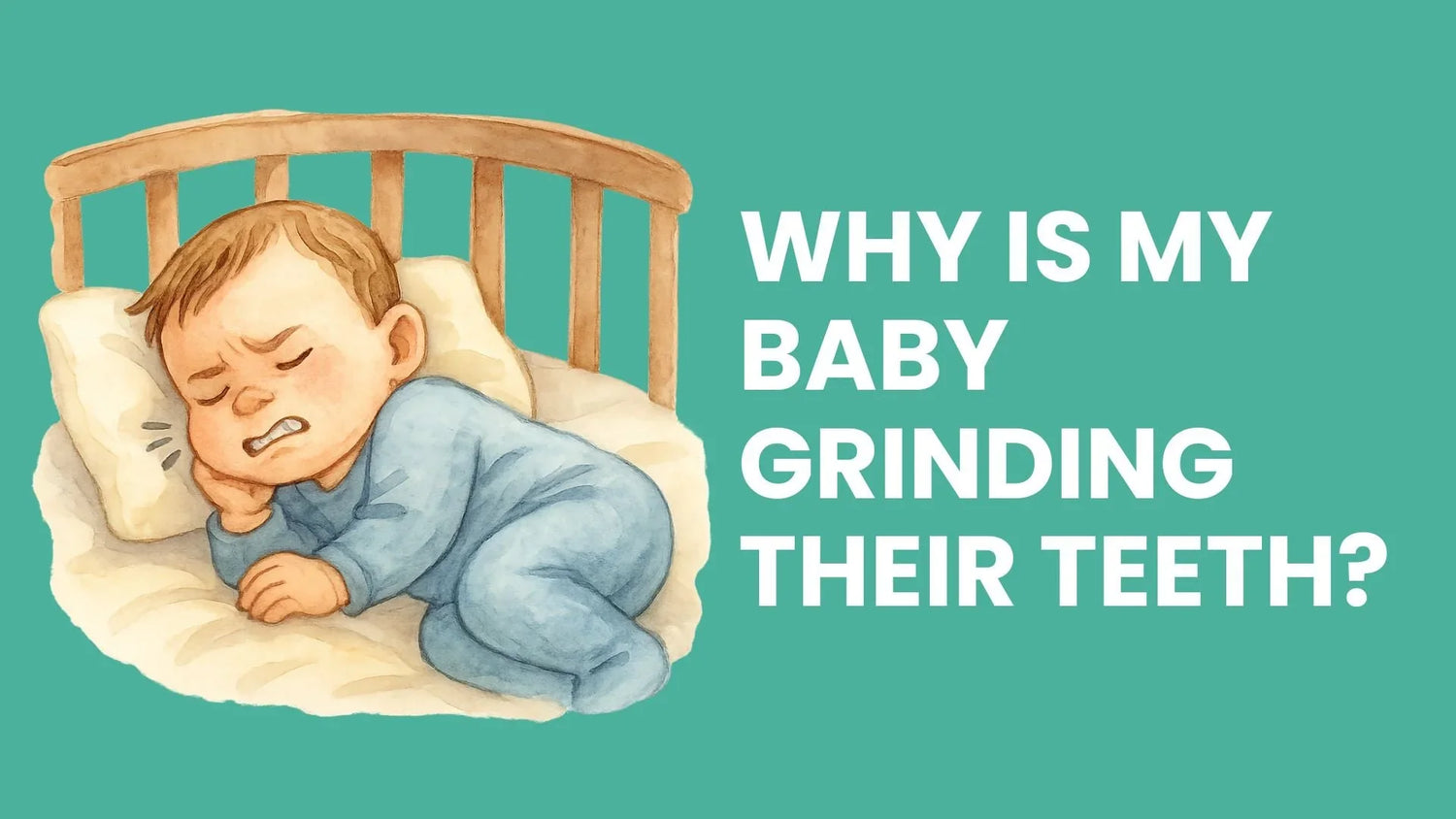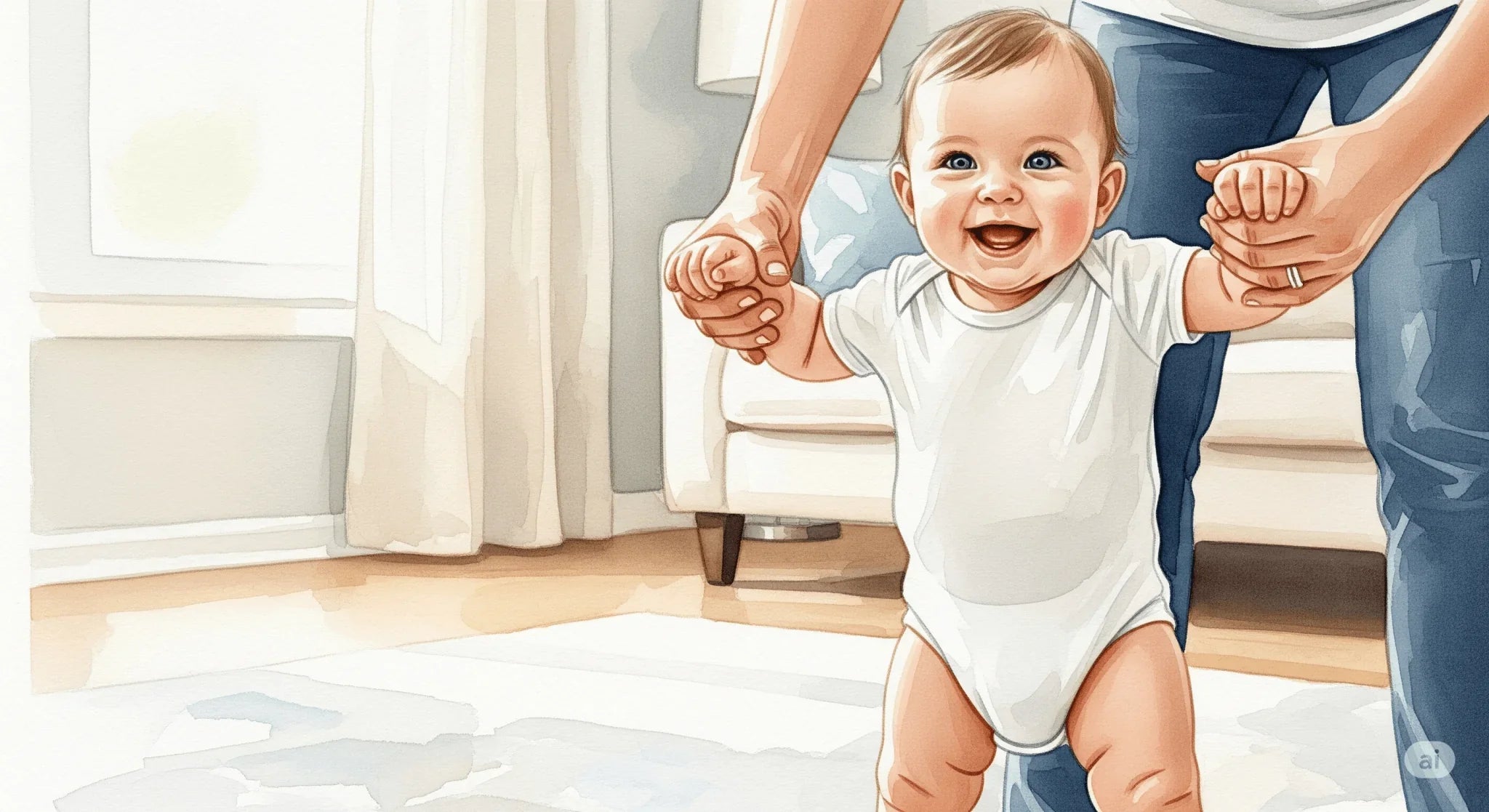Many parents have tiptoed into the nursery at night only to hear a strange, squeaky grinding noise coming from their sleeping child. Baby teeth grinding, officially known as infant bruxism, is surprisingly common. The American Academy of Pediatrics (AAP) estimates that roughly 30 percent of children grind their teeth at some point during early childhood. In most cases it’s harmless and temporary—but every parent wants to know “why is my baby grinding his teeth?” and whether they should worry.
Below, we break down the common (and not‑so‑common) reasons for infant bruxism, the telltale signs, when to call the dentist, and what you can do at home. Think of it as a quick yet evidence‑backed guide—written in plain English—to help you navigate one of those baby sleep problems that can keep parents up at night.
Common Causes of Teeth Grinding in Babies and Toddlers
- New teeth & oral exploration. Many babies start grinding soon after the first teeth erupt (around 6–12 months). It’s their way of testing out their brand‑new chompers and figuring out how the upper and lower jaws fit together (UPMC HealthBeat).
- Teething or ear discomfort. Pain from erupting teeth—or even an ear infection—can make little ones clench and grind reflexively to self‑soothe. The symptom often lines up with other toddler teething symptoms.
- Misaligned bite. An imperfect bite (malocclusion) can encourage a child to slide their jaws during sleep. Prolonged pacifier use or thumb sucking are common culprits of misalignment (The Bump).
- Sleep‑cycle arousals. Grinding is most likely during non‑REM sleep, when the brain briefly "wakes up" while the body stays asleep—a normal part of childhood sleep patterns (UPMC HealthBeat).
Less Common or Underlying Triggers
- Stress or big life changes. While rare in infants, toddlers can grind when anxious about a new sibling, daycare, or other routine disruptions (Children’s Hospital of Philadelphia).
- Airway issues. Snoring, mouth‑breathing, or enlarged tonsils can prompt the jaw to jut forward at night to open the airway—and that movement equals grinding (UPMC HealthBeat).
- Medical or neurological conditions. Bruxism is more common in children with cerebral palsy or certain medications, though this is uncommon in otherwise healthy infants (KidsHealth).
- Family history. Genetics seem to play a role; kids are likelier to grind if mom or dad did (Healthline).
Signs & Symptoms to Watch
- Audible grinding or clicking sounds coming from the crib at night.
- Visible wear on baby teeth—flattened or chipped surfaces—spotted by you or your pediatric dentist.
- Morning jaw fatigue, facial rubbing, or (in older toddlers) complaints of a sore mouth.
- Disturbed sleep or daytime crankiness if grinding is frequent.
When Is Grinding Normal & When Should You Worry?
Usually normal: Occasional grinding without pain or damage is considered a developmental phase and typically resolves by age 6.
Monitor or seek help if you notice nightly grinding, chipped teeth, snoring, or any jaw pain. A quick check‑up with a pediatric dentist can rule out problems and give you peace of mind.
Simple Remedies & Parental Tips
- Don’t wake your child when you hear grinding—it disrupts sleep and can make grinding worse (Healthline).
- Soothe teething pain with chilled teething toys or, if age‑appropriate, pediatrician‑approved pain relievers.
- Set a calming bedtime routine: warm bath, story, soft music—consistency helps kids sleep more soundly.
- Address airway issues (allergies, enlarged tonsils) with your pediatrician if grinding pairs with snoring.
- Night guards are rarely needed for toddlers because their jaws grow fast—your dentist will decide if protective gear makes sense.
Prevention & Long‑Term Outlook
You can’t always prevent bruxism—it’s largely involuntary—but you can reduce risks by limiting prolonged pacifier use, keeping sugar in check, and scheduling regular dental visits twice a year starting by age 1. The vast majority of children outgrow grinding as baby teeth fall out and permanent teeth come in.
Takeaway
Hearing your baby grinding teeth at night can be alarming, yet for most families it’s a short‑lived phase with no lasting harm. Monitor the habit, keep your child comfortable, maintain healthy sleep and dental routines—and trust that, in time, those nighttime grinds will fade away.
Sources & Further Reading
- American Academy of Pediatrics – HealthyChildren.org: Teeth Grinding in Children
- Children’s Hospital of Philadelphia: Teeth Grinding in Children
- UPMC HealthBeat: What Causes Childhood Teeth Grinding?
- Nemours KidsHealth: Bruxism (Teeth Grinding or Clenching)
- The Bump: Baby Grinding Teeth—Causes, Symptoms & Remedies
- Healthline: Toddler Teeth Grinding: What’s Causing This?





